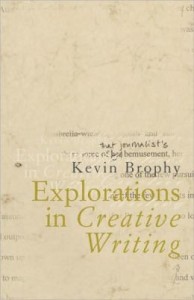 This month, I am breaking off the mad affair I have had for most of my life…sugar just has to go! Well, I’ll try my best at least. So while I let the manuscript of my first novel rest for a while, I will occasionally blog about going sugar free: it will keep me on track, keep my honest.
This month, I am breaking off the mad affair I have had for most of my life…sugar just has to go! Well, I’ll try my best at least. So while I let the manuscript of my first novel rest for a while, I will occasionally blog about going sugar free: it will keep me on track, keep my honest.
Monthly Archives: August 2013
Going Sugar-free
 I’m taking a firm stand against sugar…this is NOT an easy decision for me, I mean, sugar and I have had a strong relationship since I was a little girl. It’s not cakes and sweets I like so much as chocolate. And while I revel in the taste and sugary high I get from eating it, my desire is now in direct conflict with my slowly burgeoning waistline and long-term health and well-being.
I’m taking a firm stand against sugar…this is NOT an easy decision for me, I mean, sugar and I have had a strong relationship since I was a little girl. It’s not cakes and sweets I like so much as chocolate. And while I revel in the taste and sugary high I get from eating it, my desire is now in direct conflict with my slowly burgeoning waistline and long-term health and well-being.
How did I get here?
It has been around a year since I was last formally employed, since I last had a day job. That statement alone sounds phenomenally thrilling! I mean, how many people wish they could say that?
Endings and beginnings
When I started writing my novel, I already had an idea for an ending. It seemed to be the perfect conclusion after what I now realise was a simplistic plot. I had written a short story that was to form the basis for the novel. This was fantastic because I already had a sense of the storyline, but not so great in as much as it was limiting in times when I tried to too closely adhere to that original story. A short story made into a longer story does not make a novel unless other storylines can be brought into play, unless further complexity can be added to the mix.
How to Critique
 Every author is different and each manuscript they produce varies from another. It is important for authors to be clear about what they are looking for in a critique. If, as an author, you have specific areas you have questions about, then relay this to your critique partner. Don’t be afraid to ask specific questions as this can help guide your reviewer to areas with need outside comment. Asking questions of your reviewer can also help educate them in ways in which to critique.
Every author is different and each manuscript they produce varies from another. It is important for authors to be clear about what they are looking for in a critique. If, as an author, you have specific areas you have questions about, then relay this to your critique partner. Don’t be afraid to ask specific questions as this can help guide your reviewer to areas with need outside comment. Asking questions of your reviewer can also help educate them in ways in which to critique.
Critiquing
There comes a stage in writing, when an author wants, needs, would benefit from having someone else read their work. Having someone who is not attached to the writing, read it with fresh eyes and then offer feedback can be invaluable. Of course, this can be challenging too, but this is usually the stage when the author, the writing needs to be challenged in order to develop, to improve.
Rhizomes
I think of ideas, pieces of inspiration as rhizomes. A rhizome is a plant that has an underground system of shoots and roots and tubers – like ginger, bamboo or mint. Each tuber collecting a new and separate idea, but linked somehow to all other ideas.
Fragments
Sometimes I use fragments of sentences to inspire writing. I collect bits of sentences that I find interesting, store them away long enough to have forgotten the context, and then pull them out again to inspire new writing.
Connections
 I have just read ‘Night writing: a reading of Kafka’s ‘Metamorphosis’’ by Kevin Brophy. In many ways I enjoyed Brophy’s discussion of the story more than the story itself: he suggests that writers need to immerse themselves completely in their stories, to explore meaning rather than to impose meaning, he says that stories make themselves known to a writer and demand to be written.
I have just read ‘Night writing: a reading of Kafka’s ‘Metamorphosis’’ by Kevin Brophy. In many ways I enjoyed Brophy’s discussion of the story more than the story itself: he suggests that writers need to immerse themselves completely in their stories, to explore meaning rather than to impose meaning, he says that stories make themselves known to a writer and demand to be written.

